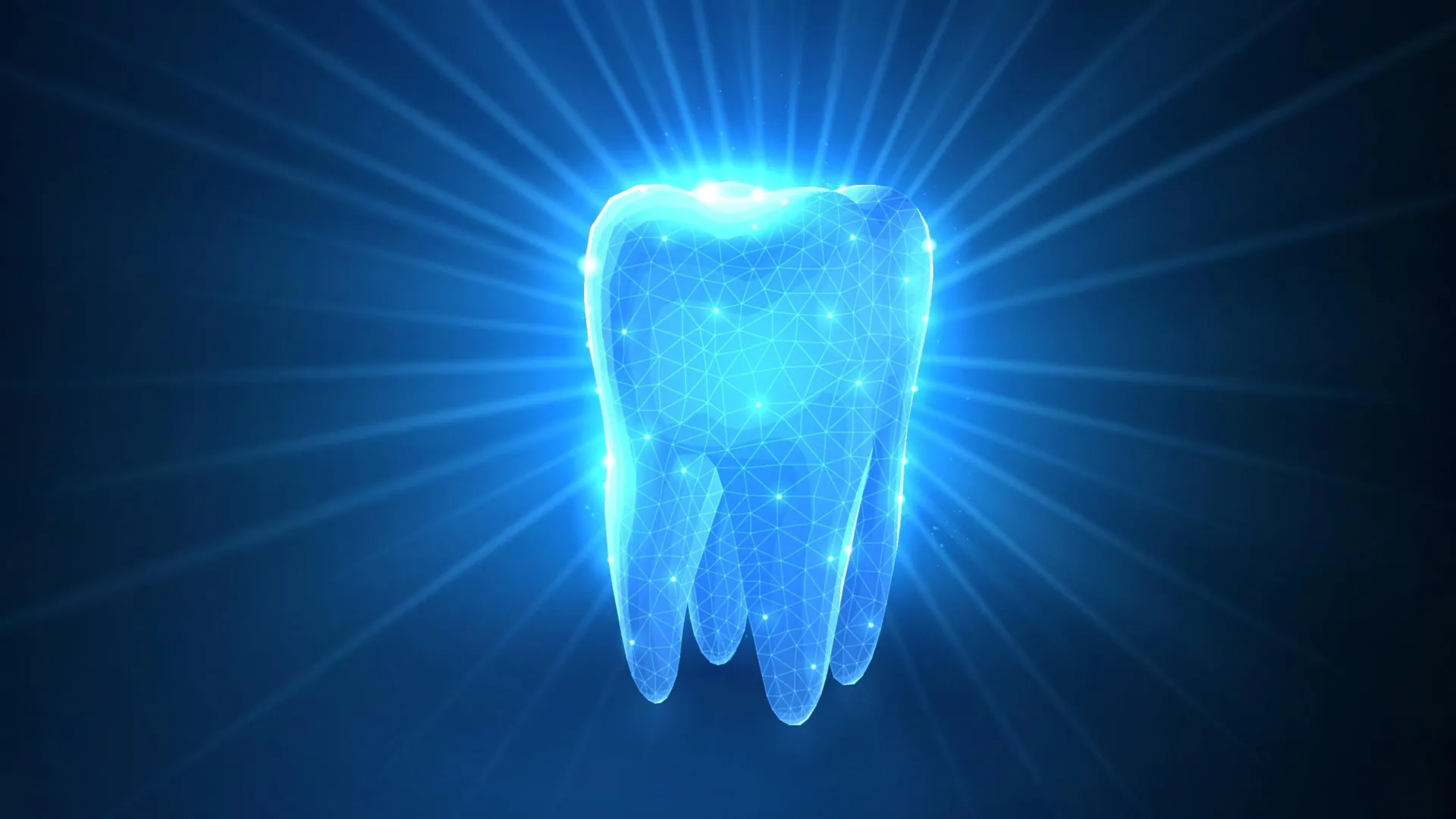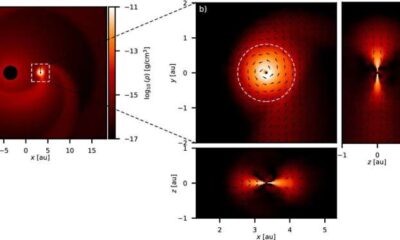Health
New Gel Offers Hope for Regrowing Tooth Enamel in Dentistry

Researchers at the University of Nottingham have developed an innovative gel that has the potential to regenerate tooth enamel, a breakthrough that could significantly impact dental care. This bioinspired gel, which mimics the natural processes of enamel formation, is designed to restore and strengthen teeth while preventing decay. The findings were published on November 4, 2025, in the journal Nature Communications.
Revolutionizing Dental Care
The newly created gel offers a fluoride-free alternative to traditional dental treatments. Unlike existing methods, which primarily focus on temporary relief, this gel actively regenerates enamel that has been eroded or demineralized. It can also reinforce existing enamel, providing protection against future decay. As dental enamel damage is a significant contributor to tooth decay—affecting nearly half of the global population—this development could transform how dental professionals approach enamel loss.
The gel is applied similarly to standard fluoride treatments, but instead of fluoride, it contains proteins that replicate those responsible for guiding enamel formation during early development. Once applied, the gel forms a thin, durable layer that penetrates the tooth surface, filling in tiny cracks and holes. It then acts as a scaffold, capturing calcium and phosphate ions from saliva to form new enamel through a process known as epitaxial mineralization.
Scientific Insights and Future Applications
Dr. Abshar Hasan, a Postdoctoral Fellow and lead author of the study, emphasized the gel’s ability to restore the unique structure of natural enamel. He stated, “When our material is applied to demineralized or eroded enamel, it promotes the growth of crystals in an integrated and organized manner, recovering the architecture of our natural healthy enamel.” Early tests have shown that this regenerated enamel mimics the mechanical properties of healthy enamel under conditions similar to everyday activities, such as chewing and exposure to acidic foods.
Professor Alvaro Mata, Chair in Biomedical Engineering & Biomaterials and lead investigator on the project, highlighted the gel’s practical applications. “We are very excited because the technology has been designed with the clinician and patient in mind. It is safe, can be easily and rapidly applied, and it is scalable,” he noted. The research team has initiated the process of commercialization through their start-up company, Mintech-Bio, aiming to introduce a product by next year.
As the gel promises to mimic natural enamel formation and strengthen teeth without the use of fluoride, its successful commercialization could revolutionize dental practices. This innovation may offer a straightforward and effective solution for restoring enamel and preventing decay, potentially improving dental health for individuals of all ages.
The implications of this research extend beyond cosmetic improvements; enamel loss has been linked to broader health issues, including diabetes and cardiovascular disease. With a safer, more effective approach to dental care on the horizon, the future of oral health may be significantly brighter.
-

 Science2 months ago
Science2 months agoUniversity of Hawaiʻi at Mānoa Joins $25.6M AI Initiative for Disaster Monitoring
-

 Science1 month ago
Science1 month agoALMA Discovers Companion Orbiting Red Giant Star π 1 Gruis
-

 Lifestyle1 month ago
Lifestyle1 month agoPark Jung Min’s Endearing Moment with Hwasa Steals Show at Awards
-

 Science2 months ago
Science2 months agoIROS 2025 to Showcase Cutting-Edge Robotics Innovations in China
-

 Lifestyle2 months ago
Lifestyle2 months agoStone Island’s Logo Worn by Extremists Sparks Brand Dilemma
-

 Lifestyle2 months ago
Lifestyle2 months agoSampson County Celebrates Susie Faison’s 100th Birthday Milestone
-

 Health2 months ago
Health2 months agoStartup Liberate Bio Secures $31 Million for Next-Gen Therapies
-

 Lifestyle2 months ago
Lifestyle2 months agoMary Morgan Jackson Crowned Little Miss National Peanut Festival 2025
-

 Health2 months ago
Health2 months agoTop Hyaluronic Acid Serums for Radiant Skin in 2025
-

 Politics2 months ago
Politics2 months agoJudge Considers Dismissal of Chelsea Housing Case Citing AI Flaws
-

 Science2 months ago
Science2 months agoArizona State University Transforms Programming Education Approach
-

 World2 months ago
World2 months agoBravo Company Veterans Honored with Bronze Medals After 56 Years










